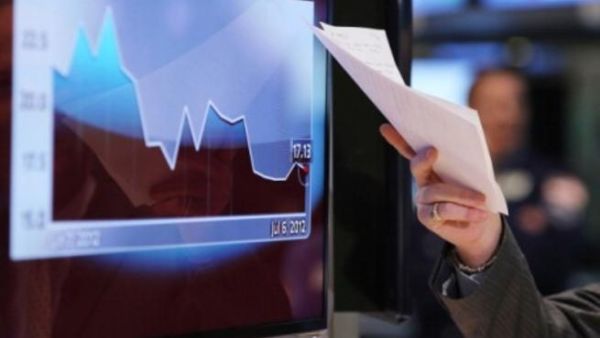Central Bank Governor Riad Salameh projected a 2 per cent growth in Lebanon’s GDP by the end of this year.
“Lebanon is capable of achieving a 2 percent growth in 2012 despite all the difficulties,” Salameh told the participants at the Arab Banking conference in Beirut.
“The country is able to finance its economic needs.”
Salameh’s projection was seen as an improvement to the prediction from some that growth would not exceed 1 percent – if not negative growth.
He repeated that the Central Bank was striving to cement the trust in the Lebanese banking sector by implementing Basel III criteria.
“We will continue to back the capitalization of the Lebanese banks to exceed the ceiling set by Basel III in order to keep our banks integrated in banking globalization,” Salameh added.
He emphasized that Lebanese banks are fully abiding by the international rules to combat money laundering as stipulated by the United Nations and the Arab League.
The governor revealed that Lebanon intended to issue $1.5 billion in Eurobonds soon to finance the public debt.
Salameh told Reuters that the Lebanese banks operating in Syria had lost $400 million due to the crisis that hit the war-ravaged country.
Of the six Lebanese banks operating in Syria, most of them saw their deposits fall sharply.
For his part, Prime Minister Najib Mikati said that Lebanon was one of the countries least affected by the international financial crisis, refusing to exploit the economy for political objectives.
Mikati stressed that Cabinet was carrying out many studies to support the economic sector and reform institutions and administrations in the country.
He added that Cabinet had referred many draft laws to Parliament, some of which have been ratified such as the financial markets law and the electronic transactions law.
The prime minister said the region was suffering from economic and financial difficulties, adding that the Cabinet had been trying to ensure that this crisis would not spill over into Lebanon.
“On the infrastructure level, the Cabinet is working on activating the electricity sector by boosting electricity production and putting more investments in this area,” he said.
Mikati stressed that the banking sector had preserved its role in luring deposits, confirming that Salameh had played a pivotal role in buttressing the banking sector.
Joseph Torbey, head of the Union of Arab Banks and president of the Association of Banks in Lebanon, placed high hopes on the future of the Arab banks despite the gloomy economic picture prevailing in the region.
“The bitter and sweet outcomes of the Arab Spring are still largely unclear and their impact will not be felt before a long journey blurred with a great deal of uncertainty and caution,” Torbey said.
He added that the situation was expected to worsen due to the deterioration of the world economic crisis taking its toll on the events occurring in the region.
“Arab banks are at the heart of all major problems, namely economic slowdown, unemployment, instability and corruption,” Torbey said.
He added that while Arab banks operated in difficult local and regional economies, and are – in view of better confronting the challenges facing the banking industry – considered to be the engines of growth, these banks have to manage risk, ensure proper enforcement of the laws against money laundering and financing terrorism, apply all financial sanctions imposed, and implement the regulations of the Central Bank and international bodies.“In Lebanon, our small country from a geographical stand point is affected by all the region’s events,” Torbey said.
“You are aware of the position we took as Lebanese not to interfere with our neighboring country’s affairs following the breaking out of war in Syria, in order to shield Lebanon from the regional and international conflicts.”
He added that Lebanon had until now succeeded in doing so to distance itself from the turmoil affecting the region.
“As for the Lebanese banking sector, Lebanese banks show a good performance despite the difficult internal and regional circumstances,” Torbey said.
“Bank deposits grew by 5.4 percent during the first nine months of 2012, compared to 6 percent for the same period in 2011. “Loans grew by 7.4 percent during the first nine months of 2012, compared to 11 percent for the same period in 2011.”
“Foreign currency reserves of the Central Bank marked their highest levels, exceeding the threshold of $35 billion at the end of October 2012.”








